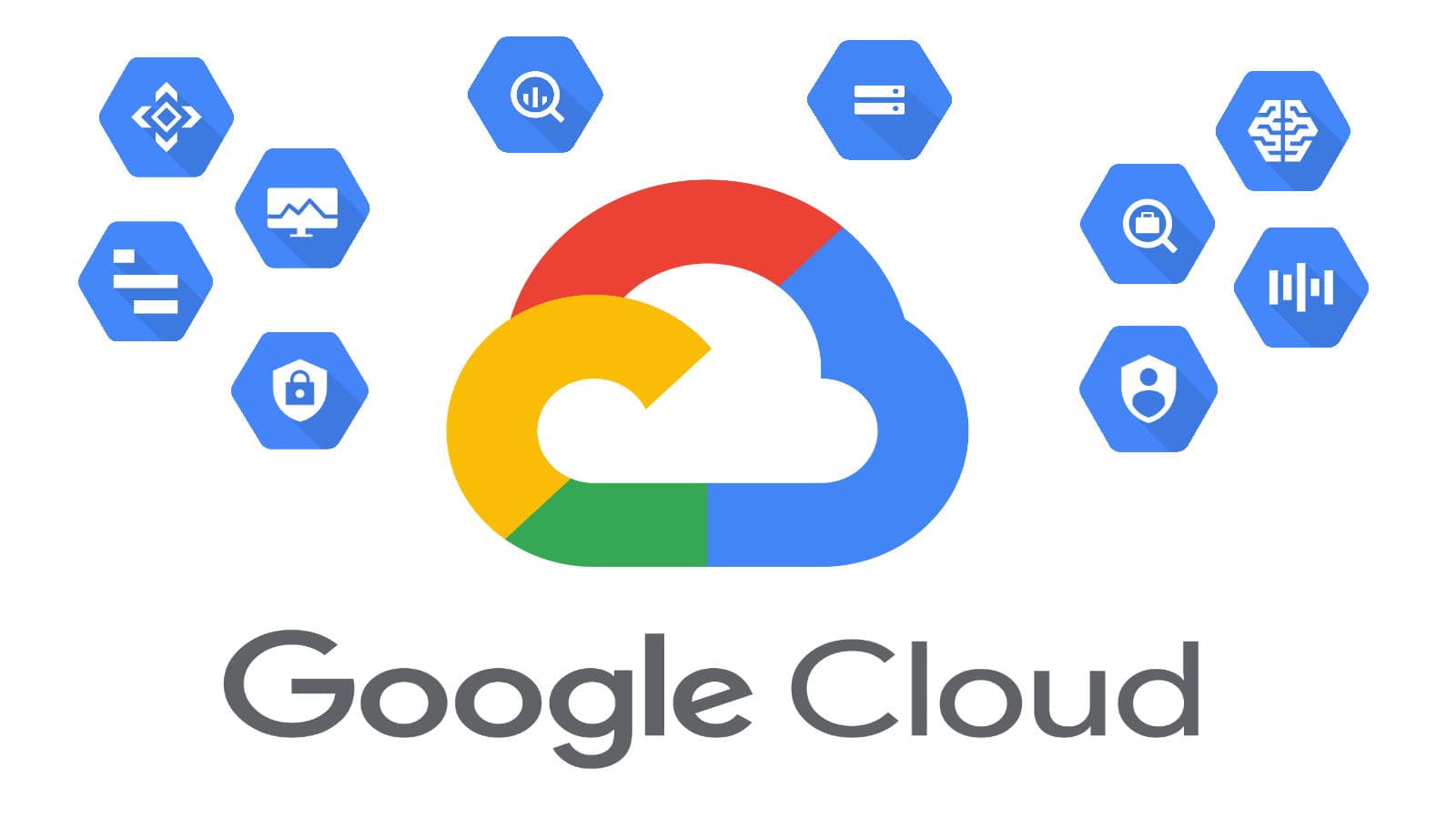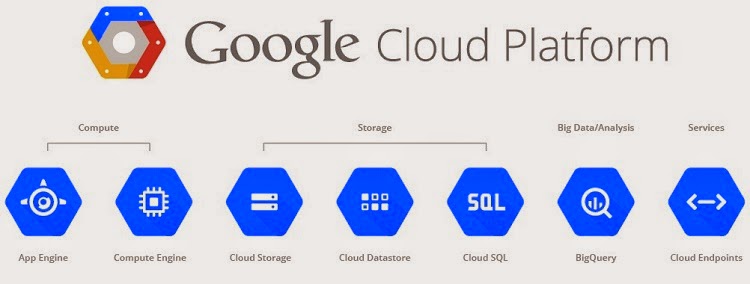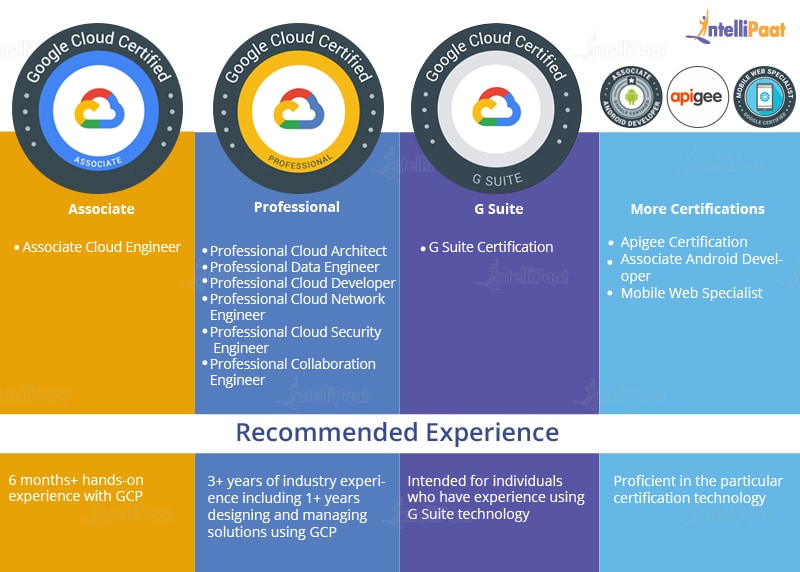Google Cloud Platform (GCP): A Brief Introduction
Google Cloud Platform (GCP) is one of the top-tier cloud service providers, competing alongside Amazon Web Services (AWS) and Microsoft Azure. As a comprehensive solution, GCP offers an extensive suite of services, including computing, data storage, and networking capabilities. These offerings empower businesses to build, deploy, and scale applications, websites, and services in a flexible, secure, and cost-effective manner.
Key Components of Google Cloud Platform
Google Cloud Platform (GCP) comprises several core components that contribute to its robust and versatile cloud infrastructure. These components include:
Compute Engine
Compute Engine is a service that allows users to launch virtual machines (VMs) on demand. This infrastructure as a service (IaaS) offering enables businesses to run their workloads on Google’s global infrastructure, taking advantage of custom machine types, flexible pricing, and robust security features.
App Engine
App Engine is a platform as a service (PaaS) solution that enables developers to build, deploy, and scale web applications without worrying about the underlying infrastructure. App Engine supports popular programming languages such as Java, Python, Node.js, C#, Go, and Ruby, making it a versatile choice for developers.
Kubernetes Engine
Kubernetes Engine is a managed environment for deploying, scaling, and managing containerized applications using Google’s infrastructure. It is based on Kubernetes, an open-source container orchestration system, and offers automated scaling, rolling updates, and self-healing capabilities.
Cloud Storage
Cloud Storage is an object storage service that allows users to store and retrieve any amount of data. Designed for high durability, resiliency, and availability, Cloud Storage offers multiple storage classes to accommodate various use cases, such as frequent access, infrequent access, and long-term archival.
Cloud SQL
Cloud SQL is a fully managed database service that makes it easy to create, configure, and manage SQL databases in the cloud. It supports popular database engines such as MySQL, PostgreSQL, and SQL Server, and offers automatic replication, backups, patches, and updates.
BigQuery
BigQuery is a serverless, highly scalable, and cost-effective data warehouse that enables businesses to analyze petabytes of data in seconds. It integrates with various data sources, supports standard SQL, and allows for real-time data analysis and visualization using tools like Data Studio.
How to Set Up a Google Cloud Platform Account
Setting up a Google Cloud Platform (GCP) account is a straightforward process that can be completed in a few simple steps. Follow this guide to get started:
Step 1: Create a New Account
Visit the GCP website and click on the “Try it free” button. Fill out the required information, including your email address and payment details. Note that you will not be charged until your free trial expires or you upgrade to a paid account.
Step 2: Create a New Project
Once your account is set up, you will be prompted to create a new project. Provide a name and a unique project ID for your project, then click “Create.”
Step 3: Set Up Billing Information
After creating your project, you will need to set up your billing information. If you haven’t already provided your payment details during account creation, you will be prompted to do so now. Make sure to set up billing alerts to avoid unexpected charges.
Step 4: Provide Access to Team Members
To collaborate with your team, you can provide them with access to your project. Navigate to the “IAM & Admin” section, then click on “IAM” to add new members and assign roles and permissions.
Throughout the setup process, you will notice GCP’s user-friendly interface and easy navigation. This intuitive design makes it simple for businesses to manage their cloud infrastructure and take advantage of GCP’s wide range of services.
Benefits of Google Cloud Platform for Businesses
Google Cloud Platform (GCP) offers numerous advantages for businesses, making it a compelling choice for organizations of all sizes. Here are some key benefits:
Scalability
GCP provides on-demand scalability, allowing businesses to quickly and easily scale their resources up or down as needed. This flexibility ensures that businesses only pay for the resources they use, making it a cost-effective solution for managing fluctuating workloads.
Security
Security is a top priority for GCP, which offers a wide range of security features to protect your data and applications. These features include encryption at rest and in transit, identity and access management, and DDoS protection. GCP also complies with various industry standards and regulations, such as SOC 1, SOC 2, ISO 27001, HIPAA, and PCI DSS.
Cost-effectiveness
GCP offers a pay-as-you-go pricing model, allowing businesses to pay only for the resources they consume. Additionally, GCP provides various cost-optimization tools and best practices to help businesses reduce their cloud spending. These tools include committed use discounts, sustained use discounts, and custom machine types.
AI and Machine Learning Capabilities
GCP offers powerful AI and machine learning services, enabling businesses to build intelligent applications and analyze large datasets. These services include AutoML, Cloud AI Platform, and AI Hub, which provide pre-built models, tools, and workflows for various use cases, such as natural language processing, computer vision, and predictive analytics.
By leveraging these benefits, businesses can enhance their operations, improve their analytics, and gain a competitive edge in their respective industries. GCP’s capabilities in computing, data storage, and networking make it an ideal choice for organizations looking to modernize their IT infrastructure and harness the power of the cloud.
Real-World Applications of Google Cloud Platform
Google Cloud Platform (GCP) has proven to be a valuable asset for businesses across various industries, helping them streamline operations, reduce costs, and enhance customer experiences. Here are some successful real-world applications of GCP:
Retail
Retailers like Bed Bath & Beyond and Carhartt have leveraged GCP to modernize their IT infrastructure, improve supply chain management, and deliver personalized customer experiences. By utilizing GCP’s data analytics and machine learning capabilities, these retailers have gained valuable insights into customer behavior, enabling them to optimize inventory management, pricing strategies, and marketing campaigns.
Finance
Financial institutions such as HSBC and Société Générale have adopted GCP to enhance their security, scalability, and regulatory compliance. GCP’s encryption and access management features have helped these organizations protect sensitive financial data, while its AI and machine learning capabilities have enabled them to develop sophisticated fraud detection systems and improve risk management.
Healthcare
Healthcare providers like the Colorado Regional Health Information Organization (CORHIO) and Sage Bionetworks have turned to GCP to manage large datasets, support research initiatives, and improve patient outcomes. GCP’s data storage and analytics tools have allowed these organizations to process and analyze massive amounts of healthcare data, leading to breakthroughs in medical research and more effective patient care.
These case studies demonstrate GCP’s versatility and effectiveness in addressing the unique challenges and opportunities faced by businesses in various industries. By harnessing the power of GCP, organizations can unlock new possibilities, drive innovation, and achieve long-term success.
Comparing Google Cloud Platform to Competitors
Google Cloud Platform (GCP) competes with other leading cloud service providers, such as Amazon Web Services (AWS) and Microsoft Azure. While each platform offers a wide range of services, they have unique selling points and differentiators that make them suitable for different use cases and customer needs.
Compute Services
GCP’s Compute Engine and AWS’s Elastic Compute Cloud (EC2) provide similar virtual machine (VM) services, while Azure’s Virtual Machines offer a comparable solution. GCP’s Kubernetes Engine and AWS’s Elastic Kubernetes Service (EKS) provide managed Kubernetes services, while Azure’s Kubernetes Service (AKS) is also a popular choice.
Storage Services
GCP’s Cloud Storage, AWS’s Simple Storage Service (S3), and Azure’s Blob Storage offer scalable object storage solutions. GCP’s Cloud SQL and AWS’s Relational Database Service (RDS) provide managed relational database services, while Azure’s SQL Database is also a strong competitor.
Data Analytics Services
GCP’s BigQuery and AWS’s Redshift provide managed data warehousing solutions, while Azure’s Synapse Analytics is a competitive offering. GCP’s Dataflow and AWS’s Kinesis offer real-time data processing services, while Azure’s Data Factory and Stream Analytics are also popular choices.
Unique Selling Points
GCP’s AI and machine learning capabilities, such as AutoML and Cloud AI Platform, provide businesses with powerful tools to enhance their operations and analytics. GCP’s Anthos platform enables organizations to build, deploy, and manage hybrid and multi-cloud applications, while AWS’s Outposts and Azure’s Arc are similar offerings.
Misconceptions
Contrary to popular belief, GCP is not solely targeted at startups and small businesses. GCP offers a wide range of services and solutions that cater to the needs of enterprises and large organizations. GCP’s customer base includes well-known companies such as PayPal, Spotify, and Target.
In conclusion, while GCP, AWS, and Microsoft Azure share similarities in their service offerings, they have unique selling points and differentiators that make them suitable for different use cases and customer needs. Businesses should carefully evaluate each platform’s capabilities, pricing, and performance before making a decision.
Google Cloud Platform Certifications and Training
Google Cloud Platform (GCP) offers a wide range of certifications and training programs to help professionals stay up-to-date with the latest cloud technologies and best practices. These programs emphasize the importance of professional development and staying updated with the ever-evolving cloud landscape.
Certification Programs
GCP offers various certification programs for different roles and specializations, including:
- Google Certified Professional Cloud Architect
- Google Certified Professional Data Engineer
- Google Certified Professional Cloud Developer
- Google Certified Professional Cloud Security Engineer
- Google Certified Associate Cloud Engineer
Training Programs
GCP provides a variety of training programs, such as:
- Coursera Specializations: In-depth learning paths that cover various topics and roles.
- Qwiklabs: Hands-on labs that allow learners to practice their skills in a real GCP environment.
- Pluralsight: Comprehensive video courses and learning paths for various roles and specializations.
- A Cloud Guru: High-quality video courses and learning paths for cloud professionals.
Why Pursue GCP Certifications and Training
Pursuing GCP certifications and training programs offers several benefits, such as:
- Demonstrating expertise and proficiency in GCP services and solutions.
- Enhancing career growth and opportunities in the cloud industry.
- Staying updated with the latest cloud technologies and best practices.
- Gaining a competitive edge in the job market.
Google Cloud Platform certifications and training programs are designed to help professionals build their skills, advance their careers, and contribute to their organizations’ success. By investing in professional development, cloud professionals can stay ahead of the curve and maximize their potential in the ever-evolving cloud landscape.
Future Trends and Innovations in Google Cloud Platform
Google Cloud Platform (GCP) is continuously evolving, introducing new features, services, and innovations to stay at the forefront of the cloud computing industry. By focusing on cutting-edge technologies and trends, GCP demonstrates its commitment to providing businesses with the most advanced and secure cloud services.
Serverless Computing
Serverless computing is a rapidly growing trend in cloud computing, and GCP is at the forefront of this innovation. Google Cloud Functions, GCP’s serverless computing solution, enables developers to build and deploy event-driven applications without worrying about infrastructure management.
Edge Computing
Edge computing is another emerging trend in the cloud industry, and GCP is well-positioned to capitalize on this opportunity. Google’s global network of data centers and edge locations, combined with its expertise in networking and content delivery, makes GCP an ideal platform for edge computing applications.
Artificial Intelligence and Machine Learning
Google has been a leader in artificial intelligence (AI) and machine learning (ML) research and development for many years. GCP’s AI and ML services, such as AutoML, Cloud AI Platform, and AI Hub, enable businesses to harness the power of AI and ML to enhance their operations, analytics, and customer experiences.
Continuous Evolution
Google Cloud Platform is committed to continuous innovation and evolution, ensuring that businesses have access to the latest and most advanced cloud services. By staying at the forefront of cloud computing trends and technologies, GCP demonstrates its dedication to providing cutting-edge cloud services and maintaining its position as a leading cloud service provider.
In conclusion, Google Cloud Platform is a powerful and versatile cloud platform that offers a wide range of services and solutions for businesses of all sizes. With its focus on innovation, security, scalability, and cost-effectiveness, GCP is well-positioned to continue its growth and success in the cloud computing industry. By staying updated with the latest trends and technologies, businesses can leverage the full potential of GCP and maximize their cloud investments.






